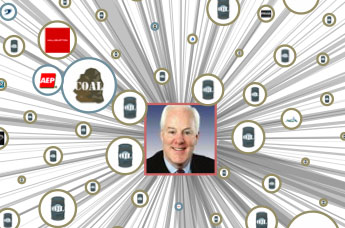Following the Deepwater Horizon disaster, oil and gas interests have flooded campaign contributions to congressional candidates. It’s not surprising, as the spill invigorated new debate about the safety of offshore drilling, the cost of reliance on fossil fuels, and the future of the oil and gas industry. The next Congress will likely have a lot to say about energy policy, and oil and gas interests are making sure they play a role in determining the make-up of the 112th Congress.
The Center for Responsive Politics reports that the oil and gas industry has given more than $17 million to congressional candidates and federal political committees so far this year. The spending outpaces previous mid-term election cycles, CRP reports. Most of the money is going to Republicans, but there are a few Democrats who have brought in pretty hefty sums from oil and gas interests as well.
In just this election cycle, ten House candidates have hauled in north of six figures from the industry. In the lead is Oklahoma Democrat Dan Boren at $183,850, but 16 of the top 20 recipients are Republicans. Rounding out the top ten:
- Steve Pearce (R-N.M.), $166,232
- Chet Edwards (D-Texas), $158,830
- Joe Barton (R-Texas), $145,620
- Mike Conaway (R-Texas), $129,450
- Eric Cantor (R-Va.), $125,550
- William Flores (R-Texas), $117,302
- John Fleming (R-La.), $108,250
- Mike Ross (D-Ark.), $106,350
- John Boehner (R-Ohio), $104,300
Fifteen of the top 20 recipients in the Senate are Republicans. David Vitter (R-La.) tops the list of at $512,284, for this campaign cycle (which goes back to January 2005). But Blanche Lincoln (D-Ark.) isn’t far behind, at $464,500. The other top recipients in the Senate are all GOPers:
- Richard Burr (R-N.C.), $221,250
- Rob Portman (R-Ohio), $213,258
- Tom Coburn (R-Okla.), $208,750
- Roy Blunt (R-Mo.), $196,550
- James DeMint (R-S.C.), $182,323
- John Hoeven (R-N.D.), $172,650
- John Thune (R-S.D.), $171,885
- Chuck Grassley (R-Iowa), $137,450
Find out more about who owns Congress in this piece from the September/October issue of Mother Jones.




